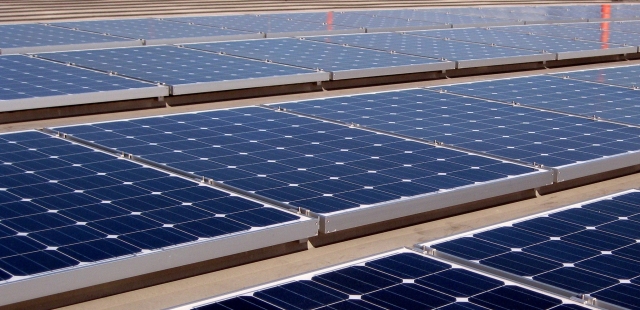 It’s about to get a whole lot sunnier in the home solar sector in the Peach State, thanks to the recent passage of a piece of Georgia state legislation which could open up the Georgia solar financing ecosystem and spur residential solar growth.
It’s about to get a whole lot sunnier in the home solar sector in the Peach State, thanks to the recent passage of a piece of Georgia state legislation which could open up the Georgia solar financing ecosystem and spur residential solar growth.
Georgia Governor Nathan Deal signed the Solar Power Free Market Financing Act (HB 57) into law in March, after being passed by the Georgia House earlier this year. The bill, which essentially allows homeowners to have a lot more financing options through agreements with third-party solar providers, will take effect on July 1, 2015, which may end up being a landmark solar date for Georgia.
Georgia, while being named as one of the top ‘hidden’ solar growth markets in the U.S., hasn’t really taken off yet in solar energy production, in spite of its sunny climate, but that could change with this legislation. A recent forecast from GTM Research predicts that Georgia solar installations could quadruple over the next year, and this solar financing legislation may play a big part in that. The Solar Energy Industries Association (SEIA) president, Rhone Resch, had this to say about the passage of HB 57:
“This forward-looking new law will help to greatly expand the use of clean, reliable and affordable solar energy across Georgia, and we applaud state legislators – especially the bill’s author, Rep. Mike Dudgeon – Georgia’s electric utilities, the Georgia Property Rights Council, the Georgia Solar Energy Association and many other groups for working together to benefit all Georgians.
“This landmark legislation will help to create new jobs across the state and stimulate economic activity, while helping to lower costs for consumers and businesses. It will also help to ensure that Georgia continues to be one of the fastest-growing solar markets in the United States.”
Although the Georgia Solar Power Free Market Financing Act is a great step in the right direction, Georgia still lags behind in a few key solar policies, namely the lack of good net metering regulations (whereby solar homeowners can sell their excess electricity generated by their panels back to the grid at retail cost) and the lack of a state Renewable Portfolio Standard (which would require utilities to procure a certain percentage of electricity from renewable energy, such as home solar). According to EnergyWire, Georgia’s net metering program only allows solar homeowners to “sell back the power at avoided costs only, which is significantly lower” than full retail cost.
For those who choose to go solar in Georgia, there are some solar incentives in place, including the federal 30% tax credit, ranging from local solar rebates from utilities (no standard state solar rebate is in place in Georgia) to energy efficiency loan programs or rebates. The DSIRE site has the full listing of Georgia renewable energy and energy efficiency incentives.
Find out how you can put solar to work for you in just a few minutes!
[Image: Georgia National Guard]
Leave a Reply
Solar Savings Calculator
Get the facts. Find out exactly how much solar will save you, including which Tax and Financial programs you qualify for!







